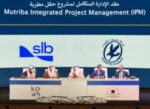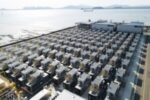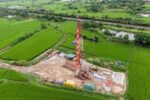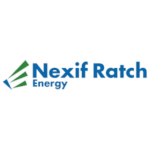SLB awarded integrated development contract for Mutriba Field in Kuwait
Global technology company SLB has been awarded by Kuwait Oil Company, a $1.5 billion, five-year integrated contract for the Mutriba field in Kuwait, including design, development and production management. The work builds on SLB’s subsurface understanding of the Mutriba field to support development planning and execution across deeper, technically demanding reservoir conditions. The contract covers development of high-pressure, high-temperature reservoirs with sour conditions, reflecting an expanded scope and responsibility for SLB as work on the Mutriba field progresses. “This award reflects the strength of our long-standing partnership with Kuwait Oil Company and the trust built over decades of working together,” said Steve Gassen, executive vice president, Geographies, SLB. “As development of the Mutriba field moves into its next stage, we are taking on end-to-end responsibility to support safe, reliable execution in complex reservoir conditions.” The project is designed to support faster development of technically challenging and remote resources, while prioritizing capital efficiency and environmental considerations. It reflects a broader shift toward end-to-end delivery models that reduce execution risk as fields move into more complex phases of development. Key points Kuwait Oil Company awarded SLB a $1.5 billion, five-year integrated development contract for the next stage of development of the Mutriba field in Kuwait, underscoring the scale and significance of the award. SLB will be responsible for the integrated design, development and production of the field. The contract advances work already underway and reflects a deepening of the long-standing partnership between SLB and Kuwait Oil Company as development progresses. The scope covers deeper, technically demanding reservoirs characterized by high pressure, high temperature and sour conditions, marking a more complex phase of field development. About SLB SLB is a global technology company that has driven energy innovation for 100 years. With a global footprint in more than 100 countries and employees representing […]









